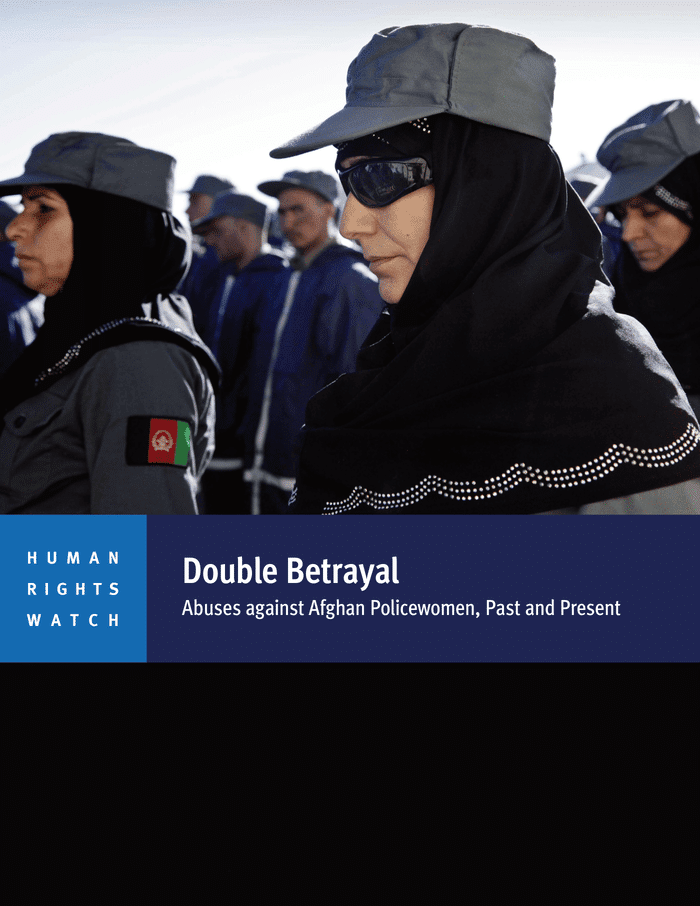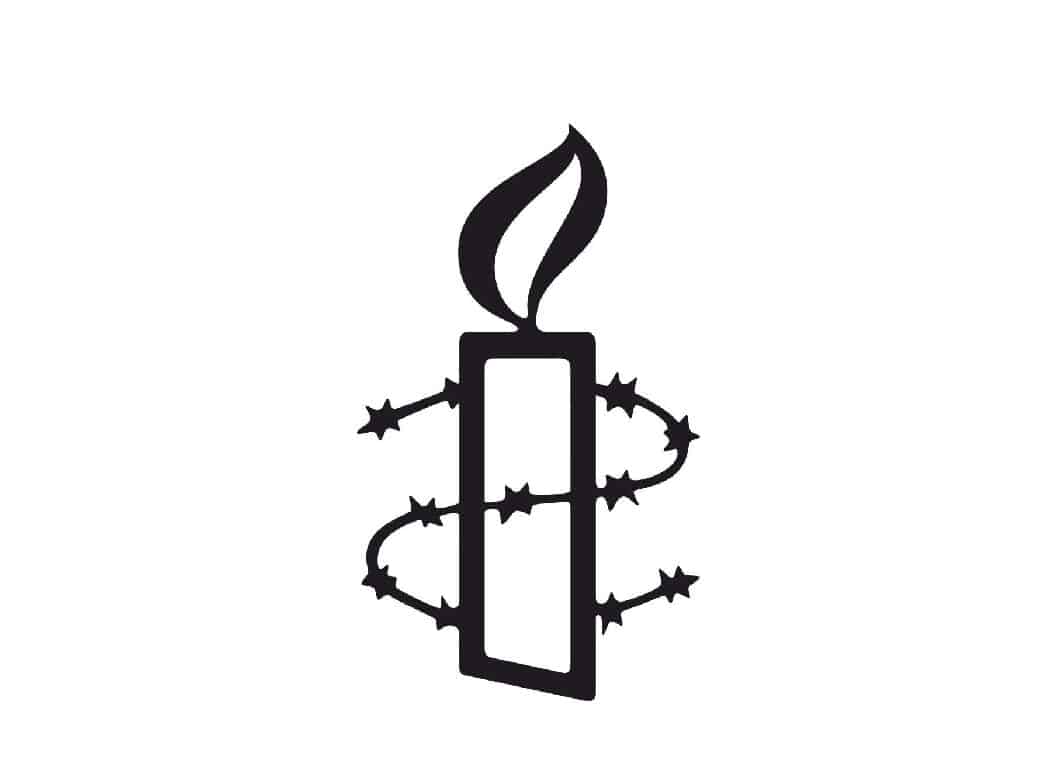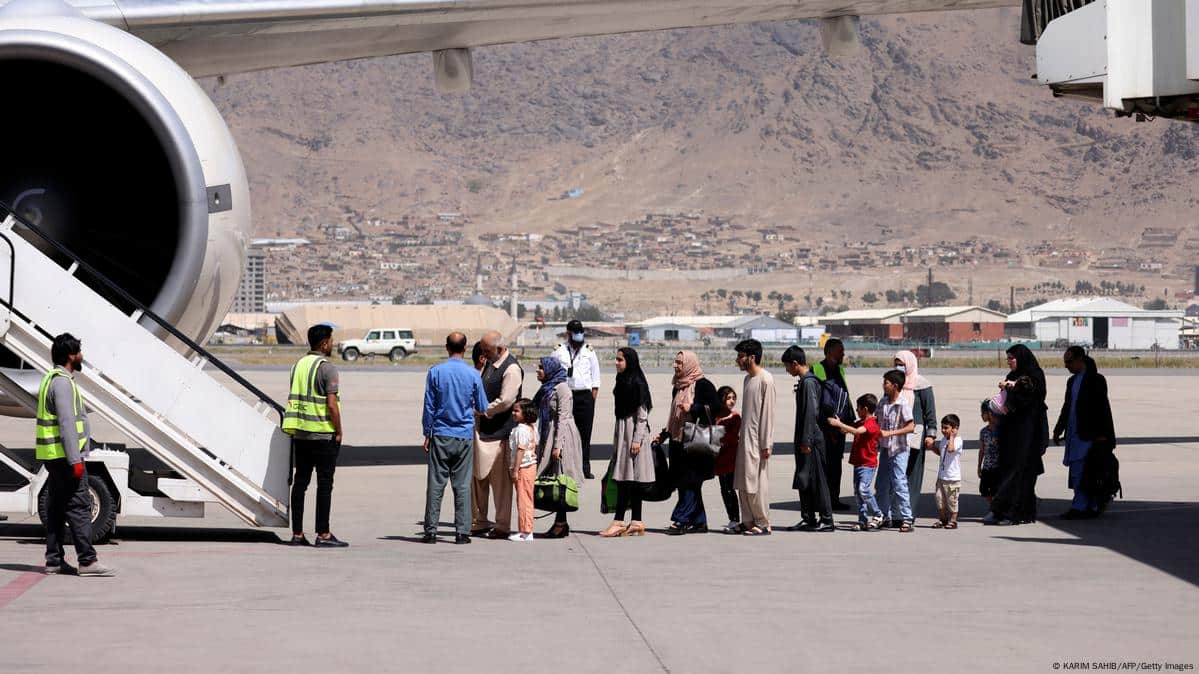
Western Nations Should Evacuate Afghan Policewomen at Risk, HRW Says
دیدهبان حقوق بشر میگوید، کشورهای غربی باید زنان پلیس افغان را که در معرض خطر هستند تخلیه کنند
کشورهایی که آموزش پلیس زنان را تامین مالی کردند باید افراد در معرض خطر را اسکان مجدد دهند
- مقامات طالبان زنان افغانستان را که در حکومت قبلی در پلیس خدمت میکردند تهدید کردهاند، که این امر به خطراتی که آنان از سوی خانوادههایشان که با کارشان به عنوان پلیس مخالف بودند، میافزاید.
- به پلیس زنان افغانستان دوبار خیانت شدهاست، ابتدا توسط حکومت سابق، که مقامات آن مسئول سوءاستفاده جنسی گسترده بودند، و سپس توسط کشورهایی که هنگام وقوع این سوءاستفادهها آن را نادیده گرفتند و پناهندگی اعطا نکردهاند.
- کشورهایی که از برنامههای آموزش و استخدام زنان در پلیس افغانستان حمایت کردهاند، از جمله ایالات متحده، کانادا، آلمان، جاپان و کشورهای اتحادیه اروپا، باید از زنان افغان که به دنبال پناهندگی هستند حمایت کنند و به این زنان در برنامههای اسکان مجدد پناهندگان اولویت دهند.
دیدهبان حقوق بشر در گزارشی که امروز منتشر کرد، اعلام کرد که مقامات طالبان زنان افغان را که تحت حکومت قبلی در پلیس خدمت میکردند تهدید کردهاند، که این امر آنها را در معرض خطر قرار میدهد.
گزارش ۲۶ صفحهای «خیانت دوگانه: بدرفتاری علیه پلیسهای زن افغانستان در گذشته و حال» تهدیدات مقامات طالبان از آگوست ۲۰۲۱ را مستند میکند که بسیاری از پلیسهای زن سابق را مجبور کرده از ترس شناسایی شدن مخفی شوند.
صدها پلیس زن تحت استخدام حکومت سابق نیز آزار و اذیت و تعرض جنسی، از جمله تجاوز جنسی، از سوی همکاران و آمران مرد را تجربه کردند که هرگز مورد پاسخگویی قرار نگرفتند. پلیسهای زن سابق و فعلی در افغانستان و کشورهایی که در آن مخفی شده یا به دنبال پناهندگی هستند، از پریشانی روانی و ترومای مداوم مرتبط با این بدرفتاری گذشته و ترس از انتقامجویی از سوی خانوادههایشان و طالبان سخن گفتند.
فرشته عباسی، پژوهشگر افغانستان در دیدهبان حقوق بشر گفت: «به پلیس زنان افغانستان دوبار خیانت شده است، اول توسط حکومت سابق افغانستان که اجازه داد خشونت جنسی جدی علیه آنها بدون مجازات ادامه یابد، و سپس توسط کشورهایی که این بدرفتاری را نادیده گرفتند و تمایلی به اسکان مجدد یا اعطای پناهندگی به زنانی که به دنبال حفاظت بودند، نداشتهاند. از زمان به قدرت رسیدن طالبان، پلیسهای زن در حکومت سابق پس از تهدیدات مقامات و افزایش خشونت از سوی خانوادههایی که با کار آنها به عنوان پلیس مخالف بودند، مجبور به فرار شدهاند».
این گزارش عمدتاً بر اساس ۲۴ مصاحبه با زنانی است که در حکومت قبلی پلیس بودند، از جمله ۱۰ مصاحبه حضوری و ۹ مصاحبه از راه دور با زنان در پنج ولایت افغانستان، و ۵ مصاحبه از راه دور در ایالات متحده، سویدن، ایتالیا، ایران و پاکستان. ما همچنین با مقامات سابق و فعلی سازمان ملل متحد و فعالان جامعه مدنی آشنا با این مسائل مصاحبه کردیم.
پلیسهای زن در حکومت سابق توصیف کردند که تماسهای تلفنی تهدیدآمیزی از مقامات طالبان دریافت کردهاند که به آنها میگفتند برای بازجویی حضور یابند و در مورد عواقب نامشخص مربوط به کار سابقشان هشدار میدادند. چندین پلیس زن در حکومت سابق و مسؤلان محابس زنانه ظاهراً توسط بستگانی که معتقد بودند کارشان «باعث شرمساری» خانواده شدهاست، کشته شدهاند. طالبان تحقیقات معتبری در مورد این قتلها انجام نداده است. زنان توصیف کردند که نیروهای طالبان به طور ظالمانه خانههایشان را جستجو کرده و گاهی به بستگانشان حمله و به اموال شخصی شان آسیب زدهاند.
زنان مصاحبه شده گفتند که تحت حکومت قبلی مرتباً مورد آزار و اذیت و تعرض جنسی از جمله تجاوز و سایر اشکال بدرفتاری جنسی و همچنین درخواستهای مافوقها برای رابطه جنسی در ازای ترفیع یا جلوگیری از اخراج قرار میگرفتند. گستردگی این بدرفتاریها حداقل از سال ۲۰۱۳ شناخته شده بود، از جمله در میان کشورهای حامی حکومت قبلی، اما افسران پلیس مسئول بدرفتاریها پاسخگو قرار داده نشدند.
زنانی که تحت حکومت سابق به عنوان کارمند دولت استخدام شده بودند، از جمله آنهایی که در پلیس بودند، با به قدرت رسیدن طالبان شغل خود را از دست دادند. در حالی که طالبان به برخی از پلیسهای زن دستور دادند در ساحات انتخاب شده از جمله جستجوی زنان در ایستهای بازرسی و نگهبانی از زندانیان زن، به کار خود بازگردند، اکثریت آنها برای یافتن درآمد جایگزین با مشکل مواجه شدهاند. سقوط اقتصادی افغانستان به ویژه پلیسهای زن سابق را سخت تحت تأثیر قرار داده است.
بسیاری به کشورهای همسایه ایران یا پاکستان فرار کردهاند یا سعی کردهاند به کشورهای دیگر بروند تا پناهندگی بگیرند. اکثر افراد مصاحبه شده از پریشانی روانی و ترومای طولانی مدت ناشی از بدرفتاریهایی که تجربه کردهاند گزارش دادند اما قادر به یافتن یا تأمین هزینه حمایت روانی-اجتماعی متناسب نبودند.
طالبان باید به تمام آزار و اذیت و تهدیدات علیه پلیس زنان و دیگرانی که برای حکومت سابق کار میکردند پایان دهد و موارد خشونت را به طور معتبر تحقیق کند. کشورهایی که قبلاً از برنامههای آموزش و استخدام زنان در پلیس افغانستان حمایت میکردند، از جمله ایالات متحده، اکنون باید از کسانی که به دنبال پناهندگی هستند حمایت کنند و به این زنان در اسکان مجدد پناهندگان اولویت دهند.
ایالات متحده باید اطمینان حاصل کند که پلیسهای زنی که در افغانستان ماندهاند یا به طور موقت در کشورهای ثالث به دنبال حفاظت ایالات متحده هستند، حداقل در همان سطح سایر گروههای آسیبپذیر برای اسکان مجدد واجد شرایط حساب شوند. بریتانیا، اتحادیه اروپا و کشورهای عضو آن، کانادا و جاپان باید مکانهای اسکان مجدد پناهندگان را برای پناهندگان افغان افزایش دهند و به زنان در معرض خطر اولویت دهند.
عباسی گفت: «سرکوب زنان و دختران توسط طالبان، پلیسهای زن سابق را دو چندان به شدت تحت تأثیر قرار میدهد. کشورهایی که زنان را در نیروی پلیس افغانستان تأمین مالی کرده و آموزش دادهاند، باید همچنین به طالبان فشار بیاورند تا به تمام بدرفتاریها علیه زنان و دختران پایان دهند.»
نقل قولهای منتخب از پلیس زنان سابق
در زمان حکومت پیشین:
«قومندان امنیه منطقه شب به خانهاش آمد و به او تجاوز کرد. شوهرش آن روز خانه نبود. او در حضور من گریه کرد. گفت نمیتوانست شکایت رسمی کند چون میترسید شوهرش طلاقش بدهد و حضانت فرزندانش را از دست بدهد.» – یک افسر پلیس سابق که واقعهای در زمان حکومت پیشین را توصیف میکند.
«از بیرون همه چیز خوب به نظر میرسید؛ اما برای کسانیکه در داخل کار میکردند، اوضاع فرق داشت. خودم دیدم که محافظها زنها را اذیت میکردند، راه شان را میگرفتند و حتی به ایشان دست میزدند… رئیس استخبارات حوزه ما واقعاً مرا آزار میداد. به من میگفت هر کاری دلش بخواهد میتواند با من بکند.» – یک پلیس زن سابق از خوست که وضعیت تحت حکومت پیشین را توصیف میکند.
از زمان به قدرت رسیدن طالبان:
«از طرف طالبان به من زنگ زدند و گفتند برگردم سر کارم. یک اسم جعلی به آنها دادم، ولی متهمم کردند به دروغگویی و گفتند باید به هر قیمتی سر کارم حاضر شوم. ترسیدم و تماس را قطع کردم. دوباره زنگ زدند و اینبار پرسیدند، ‘خودت میایی یا بیایم موهایت را بگیریم و بکشانیمت؟’» – یک پلیس زن سابق که در آن زمان مخفی شده بود.
«پشت تلفن تهدیدم کردند و هر لحظهاش یک تهدید است… هر وقت میروم بازار، ماسک و عینک میزنم تا کسی نشناسدم… اگر مردم بفهمند، ممکن است مرا به طالبان فاش کنند که قبلاً در پلیس خدمت میکردم.» – یک پلیس زن سابق که در آن زمان مخفی شده بود.
Countries That Funded Training Should Resettle Those at Risk
- Taliban authorities have threatened Afghan women who had served in the police under the previous government, adding to the risks they face from their families who opposed their work.
- Afghan policewomen have been doubly betrayed, first by the former government, whose officials were responsible for widespread sexual abuse, and then by countries that ignored the abuse when it happened and have not granted asylum.
- Countries that supported programs to train and hire women in the Afghan police, including the US, Canada, Germany, Japan, and those in the EU, should support Afghan women seeking asylum and prioritize these women for refugee resettlement.
Taliban authorities have threatened Afghan women who had served in the police under the previous government, putting them at risk, Human Rights Watch said in a report released today.
The 26-page report, “Double Betrayal: Abuses against Afghan Policewomen Past and Present,” documents threats from Taliban authorities since August 2021 that have forced many former policewomen to go into hiding out of fear of being identified.
While employed by the former government, hundreds of policewomen also experienced sexual harassment and assault, including rape, from male colleagues and supervisors who were never held accountable. Former and current policewomen in Afghanistan and countries where they are in hiding or seeking asylum described ongoing psychological distress and trauma related to this past abuse and their fear of retaliation from their families and the Taliban.
“Afghan policewomen have been doubly betrayed, first by the former Afghan government, which allowed serious sexual abuse against them to continue unchecked, and then by countries that ignored that abuse and have been unwilling to resettle or grant asylum to women seeking protection,” said Fereshta Abbasi, Afghanistan researcher at Human Rights Watch. “Since the Taliban takeover, former policewomen have had to flee after threats from the authorities and increased violence from families who opposed their working as police.”
The report is based primarily on 24 interviews with women who were police during the previous government, including 10 in-person and 9 remote interviews with women in five provinces in Afghanistan, and 5 remote interviews in the United States, Sweden, Italy, Iran, and Pakistan. We also interviewed former and current United Nations officials and civil society activists familiar with the issues.
Former policewomen described receiving intimidating phone calls from Taliban officials telling them to report for questioning and warning of unspecified consequences related to their former work. Several former policewomen and female corrections officials have been killed, apparently by relatives who believe their work “shamed” the family. The Taliban have not conducted credible investigations into these murders. Women described abusive searches of their homes by Taliban forces who sometimes assaulted their relatives and damaged personal property.
The women interviewed said that under the previous government they were subjected to frequent sexual harassment and assault, including rape and other forms of sexual violence as well as demands from superiors for sex in exchange for promotion or to avoid dismissal. The widespread nature of these abuses was well-known since at least 2013, including among countries supporting the previous government, but police officers responsible for abuse were not held accountable.
Women employed under the former government as civil servants, including those in the police, lost their jobs when the Taliban took power. While the Taliban ordered some policewomen to return to work in selected areas, including searching women at checkpoints and guarding female prisoners, the majority have struggled to find alternative income. Afghanistan’s economic collapse has hit the former policewomen particularly hard.
Many have fled to neighboring Iran or Pakistan or have tried to get to other countries to obtain asylum. Most of those interviewed reported long-term psychological distress and trauma from the abuse they have experienced but were unable to find or afford tailored psychosocial support.
The Taliban should end all harassment and threats against former policewomen and others who worked for the former government and credibly investigate incidents of violence. Countries that had previously supported programs to train and hire women in the Afghan police, including the US, should now support those seeking asylum and prioritize these women for refugee resettlement.
The US should ensure that female police remaining in Afghanistan or temporarily in third countries seeking US protection should be eligible for resettlement at least on the same level as other vulnerable categories. The United Kingdom, European Union and its member states, Canada, and Japan should increase refugee resettlement places for Afghan refugees, prioritizing women at risk.
“The Taliban’s oppression of women and girls hits former policewomen doubly hard,” Abbasi said. “Governments that funded and trained women in the Afghan police force should also press the Taliban to end all abuses against women and girls.”
Selected Quotes from Former Policewomen
Under the Former Government:
“The district police chief came to her house at night and raped her. Her husband was away that day. She cried in front of me. She said she couldn’t file an official complaint because she feared her husband would divorce her, and she would lose custody of her children.” – A former police officer describing an incident that took place during the former government.
“Everything seemed to be fine if you look from outside; for those who have worked inside, it was different. I have witnessed bodyguards harassing women, stopping them, and even touching them.… The head of intelligence for my station really harassed me. He told me that he can do whatever he wants to me.” – A former policewoman from Khost describing the situation under the former government.
Since the Taliban Takeover:
“I received a call from the Taliban telling me to come back to my job. I gave them a fake name, but they accused me of lying and said that I must show up for my job at any cost. I got scared and cut off the phone call. Again, I received a phone call and this time I was asked, ‘Will you come by yourself, or should we come and drag you by the hair and bring you?’” – A former policewoman then in hiding.
“Over the phone I have been threatened, and every second is a threat.… Whenever I go to bazaar, I wear a mask and glasses so no one can recognize me.… If people find out, they might rat me out to the Taliban that I used to work for the police.” – A former policewoman then in hiding.



